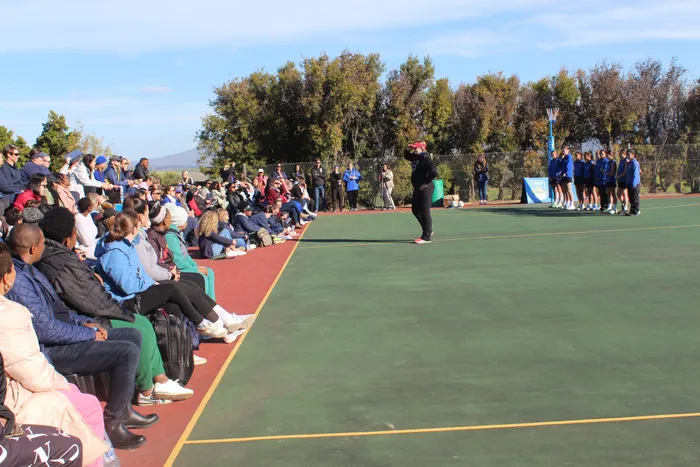Coaching clinic empowers netball coaches

Dr Elsje Jordaan, a sports scientist from Sportisimo and current Golden Fireballs coach shares advice.
Netball coaches mainly from Western Cape schools were afforded the opportunity to improve their skills during a clinic hosted by South African Schools Netball (SASN) in the Overberg.
The coaching clinic was conducted by Dumisani Chauke, former Proteas player and assistant coach who is the official ambassador of PEP Mini Netball, and Dr Elsje Jordaan, a sports scientist from Sportisimo and current Golden Fireballs coach.
Speaking after the event, Chauke said she was happy the session was taking place during Women’s Month although, she said, every month should be celebrated as women’s month.
Chauke, who hails from rural Limpopo Province, shared how she became a netball player. She said she was never interested in the game until one of her school’s players was injured and her teacher pleaded with her to join in.
She encouraged the netball coaches, who are also teachers, to continue doing a good job.

Talking Women's Month, she said: “It is quite important to send the elevator down to bring everyone else up with us and also sharing our stories and sharing knowledge, making sure that everyone gets to learn. The more people learn, teach and play the sport, the bigger the sport becomes and we can then send a team to the Olympics.”
And about her role in elevating the sport, Chauke said: “I am thrilled to be part of this journey and look forward to inspiring others to achieve their full potential. This is the sport that made me and shaped me. Teachers might think they are doing something small but their contribution in developing the sport and children is huge.”
The PEP Mini Netball Coaching Sessions are designed to enhance coaching techniques, deepen knowledge of the game, and develop leadership skills to elevate the overall standard of netball coaching.
Dr Jordan said the aim of the coaching session was to develop and invest in coaches, and teach them new techniques on how to develop children. “It is so important for these kids to learn early. They need the right information. These girls are future stars, future Proteas. We need to identify them at an early age and the only way to identify them is to develop them at this early level,” she said.
Related Topics: